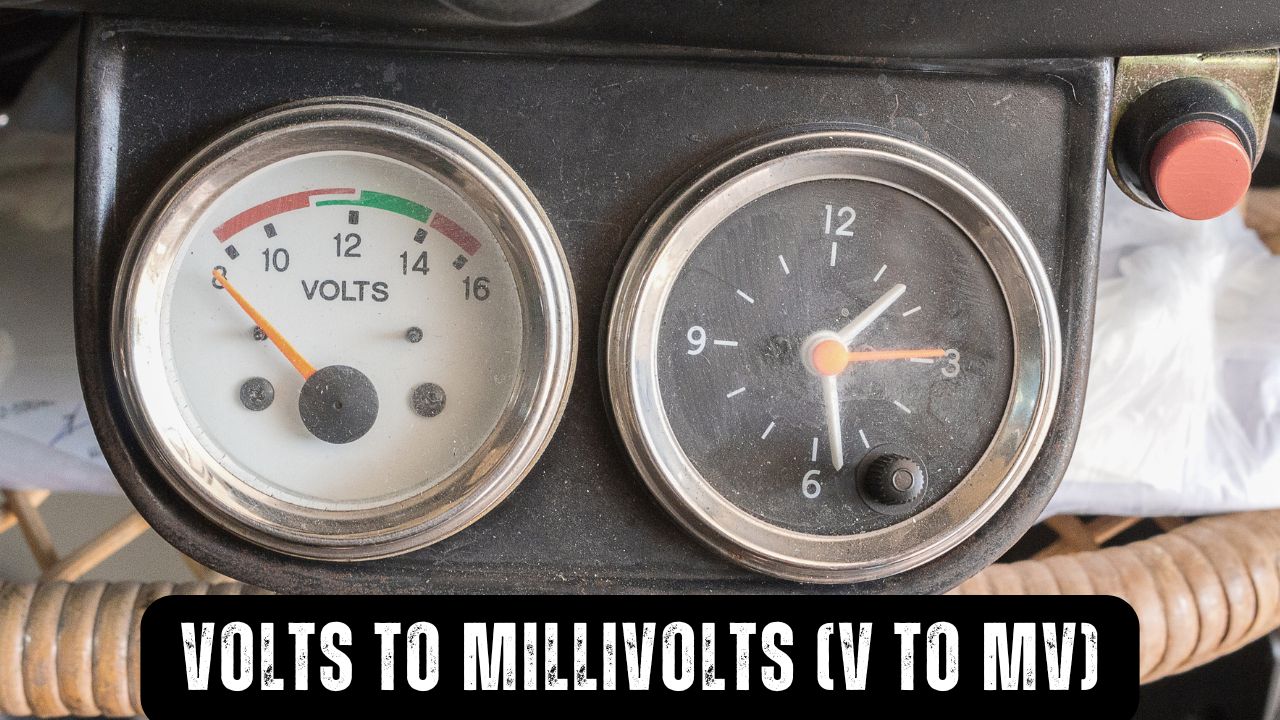Volts to Millivolts Calculator

Table of Contents
How to Convert Volts to Millivolts
1 volt (V) = 1,000 millivolts (mV), so multiply volts by 1,000 to convert to millivolts.
Formula
mV = V × 1000
mV = Voltage in millivolts
V = Voltage in volts
Quick Trick: 1 Volt = 1000 Millivolts!
Example
Imagine you have a voltage measurement:
- We measured: 5 Volts
Here’s how we figure it out:
1. Take our formula: mV = V × 1000
2. Put in 5 Volts
3. mV = 5 × 1000
Answer: 5000 mV
What Do These Terms Really Mean?
Millivolt (mV) – A Small Measure of Voltage
A millivolt (mV) is a unit of voltage equivalent to one-thousandth of a volt:
- Commonly used in electronics and electrical measurements.
- Useful for measuring small voltages in circuits.
Volt (V) – The Basic Unit of Voltage
Volts are a standard unit of electrical potential. Here’s what you need to know:
- Used to measure electrical potential difference.
- 1 Volt is the potential difference that will move 1 Ampere of current against 1 Ohm of resistance.
For more information, visit the Wikipedia page on Volts.
